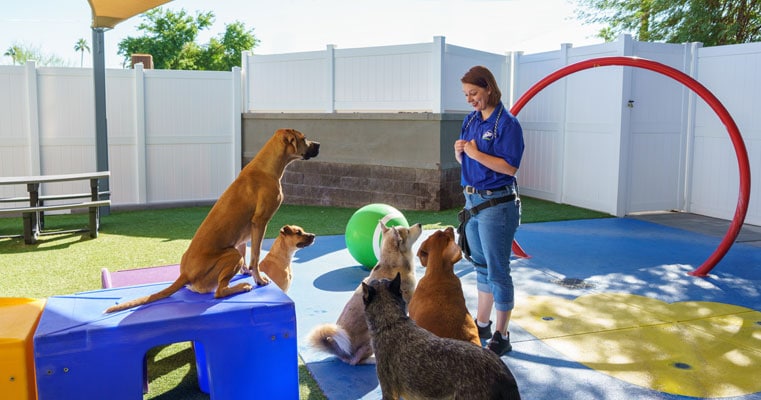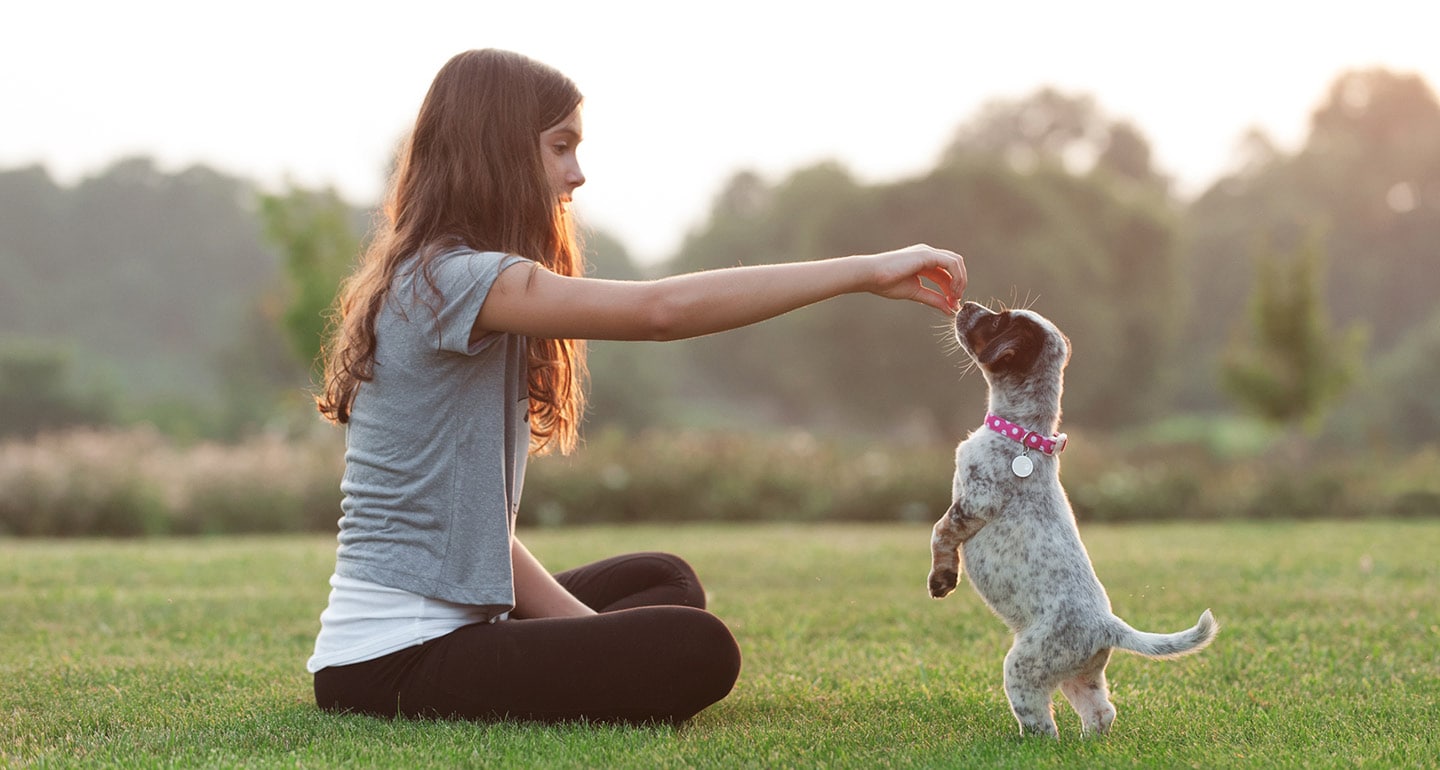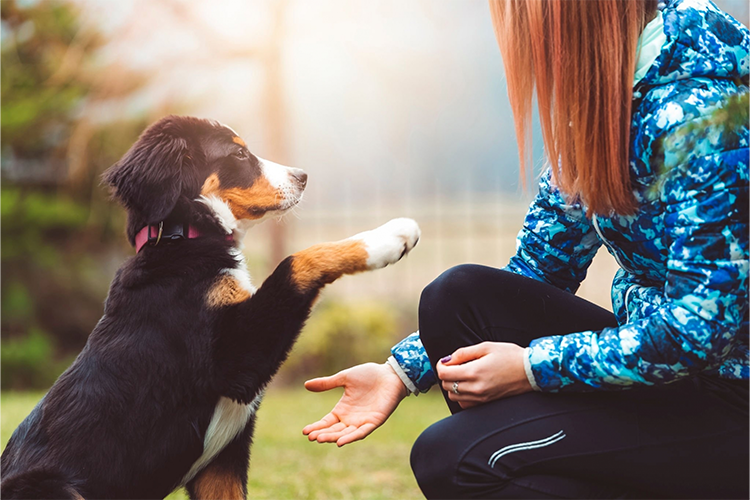Professional Insights on Dog Training Charlotte NC: Transform Your Pup Today
Professional Insights on Dog Training Charlotte NC: Transform Your Pup Today
Blog Article
Unlock Your Pet's Prospective: Proven Dog Training Methods for Success
Efficient dog training is a nuanced procedure that hinges on comprehending canine actions and utilizing medically backed techniques. By incorporating favorable support, establishing clear commands, and prioritizing socialization, canine owners can grow an effective relationship with their pet dogs.
Comprehending Pet Dog Actions
Understanding pet dog habits is crucial for efficient training and promoting a positive connection between canines and their owners. A thorough understanding of canine body movement, articulations, and social communications is crucial for acknowledging their needs and emotions. Pets connect primarily via non-verbal hints; for instance, a wagging tail may show excitement, while pinned ears can indicate concern or entry.

Moreover, ecological elements play a significant role fit a canine's habits. Modifications in routine, new surroundings, or the existence of strange people can cause stress and anxiety or anxiousness in dogs. Identifying these triggers makes it possible for owners to reduce negative reactions and create ideal training methods.
Inevitably, a deep understanding of pet behavior lays the structure for effective training methods, enhancing both actions and the overall bond between the pet dog and its proprietor. Dog training. This expertise is crucial for fostering a well-adjusted, satisfied canine friend
Positive Reinforcement Techniques
Reliable training depends greatly on positive support strategies, which have actually been revealed to produce significant outcomes in shaping desired habits in pet dogs. This technique involves awarding a dog for displaying particular habits, thereby raising the possibility that these habits will certainly be repeated. Benefits can take numerous kinds, including deals with, praise, toys, or play, depending upon what encourages the individual canine.

It is necessary to progressively phase out benefits as the dog finds out the habits, transitioning to periodic support. This strategy maintains the behavior in time while protecting against dependency on continuous rewards. By concentrating on positive reinforcement, instructors can cultivate a relying on relationship with their canines, advertising a healthy and participating training atmosphere that improves overall obedience and efficiency.
Developing Constant Commands
A fundamental aspect of effective dog training is the facility of consistent commands. Consistency in commands is critical for reliable communication between the dog and the instructor. When commands are uniform, pets discover to connect particular words with wanted habits, which accelerates the training process and improves understanding.
To develop constant commands, it is essential that all relative use the exact same terminology and motions. If one individual uses "sit" while one more says "rest down," it can produce confusion for the pet. Select clear, distinct words for commands and make sure everybody entailed in the dog's training adheres to these choices.
Enhance commands with constant method, making sure that the pet dog obtains enough possibilities to react appropriately. When a pet efficiently adheres to a command, instant positive support needs to comply with.
Lastly, be client. Establishing regular commands requires time and effort. With dedication and quality, you will help your dog establish a solid understanding of expectations, inevitably resulting in a mannerly companion.
Socialization and Direct Exposure
Socializing a pet dog is necessary for fostering a well-adjusted and positive friend. This procedure includes exposing your pet to a range of atmospheres, individuals, and other animals to create their social skills and versatility. Early socialization, ideally in between the dog jumping up and biting ages of three to fourteen weeks, is essential, as it lays the groundwork for a dog's future actions.
During socializing, purpose to give positive experiences in different settings, such as parks, busy roads, and homes with various other family pets. Introduce your pet dog to different stimulations, consisting of noises, sights, and scents, making certain that each encounter is gratifying. This exposure aids alleviate worry and anxiety, leading the method for an extra durable pet.
Involving in controlled team play sessions with other pets can additionally improve social abilities, instructing your animal ideal interactions and boundaries. Focusing on socialization will substantially contribute to your pet dog's general joy and habits throughout their life.
Overcoming Common Educating Obstacles

Canines may struggle to focus in unfamiliar or active settings. Slowly desensitize your pet dog to interruptions by starting training in a silent environment and gradually introducing more stimulations as they come to be skillful.
Additionally, behavior issues like jumping or too much barking can come to be aggravating. Address these by educating alternative behaviors, such as resting calmly when welcoming guests. Consistency and perseverance are crucial; enhance desired behaviors constantly and prevent scolding, which can lead to complication.
Lastly, identify that each canine is special, and training timelines might vary. Dressmaker your approach to your pet's private requirements, and look for professional advice if needed. With willpower and the best strategies, getting over these obstacles can lead to redirected here a well-trained, pleased canine buddy.
Final Thought
To conclude, opening a canine's possible demands a detailed technique that incorporates an understanding of canine behavior, the application of favorable reinforcement strategies, and the establishment of regular commands. Early socializing and direct exposure to varied settings even more boost a pet dog's adaptability and confidence. By dealing with usual training challenges with customized methods and patience, a unified and participating relationship between pet and handler can be cultivated, ultimately resulting in a well-behaved buddy qualified of flourishing in different scenarios.
Effective pet training is a nuanced process that pivots on understanding canine actions and employing clinically backed techniques.Comprehending dog actions is necessary for reliable training and cultivating a positive relationship between canines and their proprietors.Efficient training counts heavily on positive support strategies, which have been shown to produce substantial outcomes in forming desired habits in pet dogs. When commands are uniform, pets find out to connect specific words with preferred habits, which accelerates the training process and improves understanding.
In final thought, opening a dog's potential demands a detailed approach that incorporates an understanding of canine behavior, the application of favorable support techniques, and the facility of regular commands.
Report this page